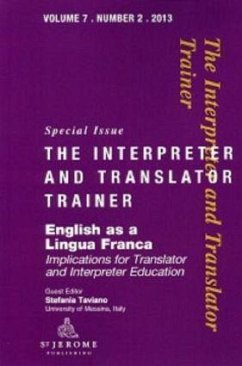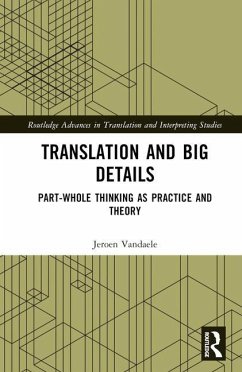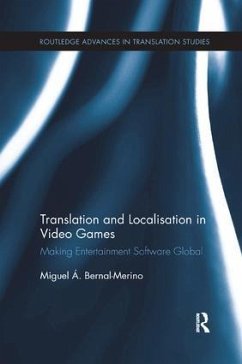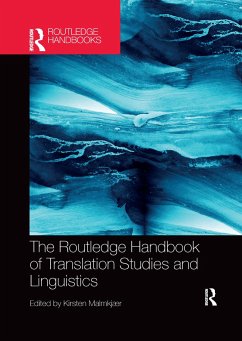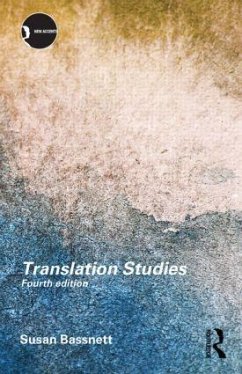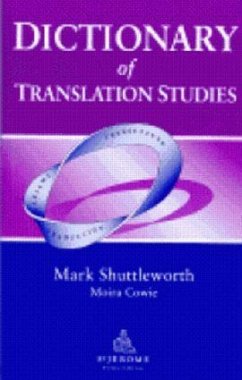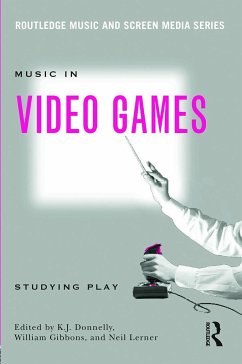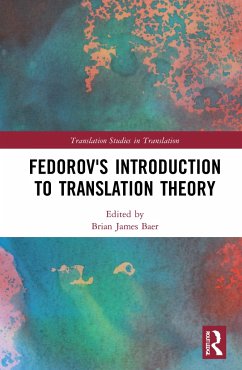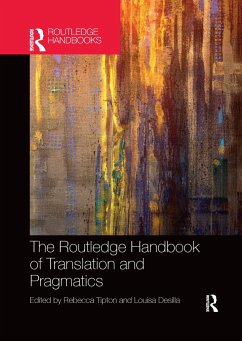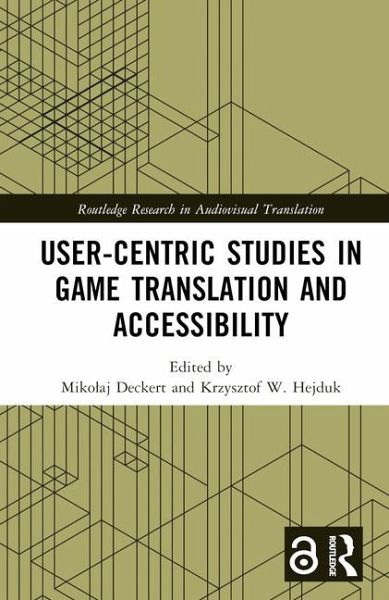
User-Centric Studies in Game Translation and Accessibility
Versandkostenfrei!
Versandfertig in 6-10 Tagen
138,99 €
inkl. MwSt.
Weitere Ausgaben:

PAYBACK Punkte
69 °P sammeln!
This innovative collection makes the case for a push within the discipline to adopt user-centric perspectives on translated video games and their corresponding accessibility features.The volume demonstrates how audiovisual translation (AVT) and media accessibility (MA) involve decisions that can re-shape the gaming experience of players and other audiences. Contributions in the book outline this in two ways. First, they collectively provide an account of the prospects and challenges that come with user-centric scholarly inquiry in game translation and accessibility. Second, complementarily, th...
This innovative collection makes the case for a push within the discipline to adopt user-centric perspectives on translated video games and their corresponding accessibility features.
The volume demonstrates how audiovisual translation (AVT) and media accessibility (MA) involve decisions that can re-shape the gaming experience of players and other audiences. Contributions in the book outline this in two ways. First, they collectively provide an account of the prospects and challenges that come with user-centric scholarly inquiry in game translation and accessibility. Second, complementarily, they report on original studies and new, exciting findings while adopting the perspective of global users. Taken together, the collection serves as a call to action to systematically advance research eliciting variable types of input from users who take advantage of translation and accessibility services. Such research will facilitate a clearer understanding of how the particular decisions of translators and other relevant agents shape game reception.
This book will be of interest to scholars in both translation studies and video game research, as well as those interested in media accessibility and media studies more broadly.
Chapters 2 and 7 of this book is freely available as a downloadable Open Access PDF at http://www.taylorfrancis.com under a Creative Commons Attribution-NonCommercial-NoDerivs (CC BY-NC-ND) license.
The volume demonstrates how audiovisual translation (AVT) and media accessibility (MA) involve decisions that can re-shape the gaming experience of players and other audiences. Contributions in the book outline this in two ways. First, they collectively provide an account of the prospects and challenges that come with user-centric scholarly inquiry in game translation and accessibility. Second, complementarily, they report on original studies and new, exciting findings while adopting the perspective of global users. Taken together, the collection serves as a call to action to systematically advance research eliciting variable types of input from users who take advantage of translation and accessibility services. Such research will facilitate a clearer understanding of how the particular decisions of translators and other relevant agents shape game reception.
This book will be of interest to scholars in both translation studies and video game research, as well as those interested in media accessibility and media studies more broadly.
Chapters 2 and 7 of this book is freely available as a downloadable Open Access PDF at http://www.taylorfrancis.com under a Creative Commons Attribution-NonCommercial-NoDerivs (CC BY-NC-ND) license.




